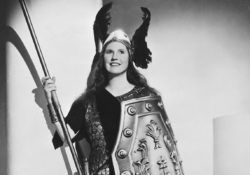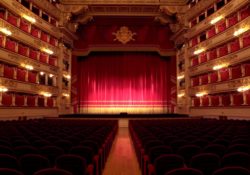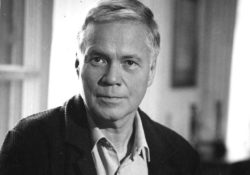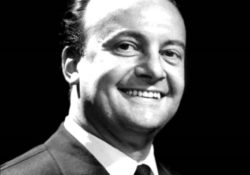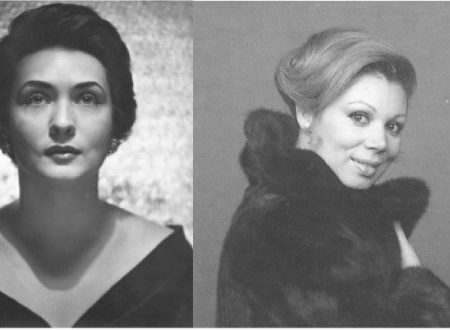Part of Iconic Voices of the Past, a series from Singers on Singing
Above: Gérard Souzay
LISTEN HERE:
(For more information about the Singers on Singing: Iconic Voices of the Past series, please visit the series page.)
List of Singers and Excerpts
Mattia Battistini, link to 19th century
Tosti, “Amour! Amour!”
Giuseppe De Luca (lyric baritone)
DON PASQUALE, “Bella siccome un angelo”
Gérard Souzay (lyric baritone)
Liszt, “O quand je dors”
Pavel Lisitsian (lyric baritone)
QUEEN OF SPADES, “Ya vas lyublyu”
Dietrich Fischer-Dieskau (lyric baritone)
LIEDER EINES FAHRENDEN GESELLEN, “Ging heut’ morgen uber’s Feld”
Nicolae Herlea (dramatic baritone)
RIGOLETTO, “Cortigiani”
Charles Cambon (dramatic baritone)
THAÏS, “Voilà donc la terrible cité”
Hans Hermann Nissen (heroic)
DER FLIEGENDE HOLLÄNDER, “Die Frist ist um”
Fernando Corena (Buffo bass)
LE NOZZE DI FIGARO, “La vendetta”
Alexander Kipnis (basso cantante)
SIMON BOCCANEGRA, “Il lacerato spirito”
Kurt Moll (Seriöser Baß)
DIE ENTFÜHRUNG AUS DEM SERAIL, “Ha, wie will ich triumphieren”
Ludwig Weber (Schwarzer Baß)
GÖTTERDÄMMERUNG, “Hier sitz’ ich zur Wacht”
Sui generis:
Feodor Chaliapin
BORIS GODUNOV, Clock Scene
Feodor Chaliapin
BORIS GODUNOV, “Kak vo gorode bilo vo kazani”
Mattia Battistini
Tosti, “Amour! Amour!”
In Victor Hugo’s poem, the singer speaks of sitting quietly with his beloved, gazing at the sky which was void of daylight, wondering what was going on in their own souls. The singer saw his beloved look at him with a gaze that resembled stars. It was love!
Giuseppe De Luca (lyric baritone)
DONIZETTI: DON PASQUALE, “Bella siccome un angelo”
The aging Don Pasquale wants to find a young woman to marry. Dr. Malatesta explains that he knows the right lady. In his aria, he reveals that she’s pretty as an angel, fresh as a lily, with a delicious smile and an innocent soul.
Gérard Souzay (lyric baritone)
Liszt, “O quand je dors”
In Victor Hugo’s poem, the singer asks his lover to come closer to him and let her breath touch him. As his lips part, his dark dream will end and a new dream will shine. When the lover kisses him, she will be transformed from angel to woman and his own soul will awaken.
Pavel Lisitsian (lyric baritone)
TCHAIKOVSKY: QUEEN OF SPADES, “Ya vas lyublyu”
Attending a ball with Lisa, his fiancée, Prince Yeletsky notices that she seems distracted. He passionately declares his love, begs her to confide in him, and assures her that he will do anything for her.
Dietrich Fischer-Dieskau (lyric baritone)
MAHLER: LIEDER EINES FAHRENDEN GESELLEN, “Gingheut’ morgen uber’s Feld”
In Mahler’s own text, the singer is dazzled by the beauty of the morning. He sings of crossing the fields and mentions being greeted by the finch, the flowers, and the shining sun. He asks himself if his happiness will now begin, but quickly concludes that it will never bloom for him.
Nicolae Herlea (dramatic baritone)
VERDI: RIGOLETTO, “Cortigiani”
Rigoletto, the Duke of Mantua’s court jester,realizes that his abducted daughter, Gilda, is actually in the palace, where the Duke is seducing her. Rigoletto lashes out at the Duke’s cruel courtiers who have barred his way to the Duke’s apartment. Finally kneeling before them, he explains that Gilda is all he has in the world and begs for their pity.
Charles Cambon (dramatic baritone)
MASSENET: THAÏS, “Voilà donc la terrible cité”
The fanatical monk Athanaël is possessed by his need to reform Thaïs, a courtesan in Alexandria. He sings his monologue having returned to the city, where he was born and from which he escaped, totally alienated by it. He curses the richness, the beauty, the luxuries of Alexandria, and asks the angels above to send God’s breath to him, so that it can penetrate the corrupt environment in which he now finds himself.
Hans Hermann Nissen (heroic)
WAGNER: DER FLIEGENDE HOLLÄNDER, “Die Frist ist um”
The Dutchman has come ashore --as he does every seven years – to search for a woman who can be faithful to him unto death. In his monologue, he believes his torment is eternal, and that it will end only on the day that the dead rise up. (Start listening at 6:50)
Fernando Corena (Buffo bass)
MOZART: LE NOZZE DI FIGARO, “La vendetta”
Dr. Bartolo has never forgiven Figaro for helping Count Almaviva marry Rosina, Bartolo’s ward whom he wanted to marry himself.In his aria, he calls revenge “a pleasure meant just for the wise.” He asserts that he will stop at nothing – changing the whole code of law if he has to – and that all of Seville will know his name. He declares, “That rascal Figaro will be beaten!”
Alexander Kipnis (basso cantante)
VERDI: SIMON BOCCANEGRA, “Il lacerato spirito”
Fiesco is mourning the death of his daughter Maria; she’s had a child out of wedlock, and the child’s father is the corsair Simon Boccanegra, whom Fiesco despises as a “vile seducer.” In the aria, he refers to his own wounded spirit and begs heaven to give Maria the garland of a martyr. Finally he asks her to pray for him in heaven.
Kurt Moll (Seriöser Baß)
MOZART: DIE ENTFÜHRUNG AUS DEM SERAIL, “Ha, wie will ich triumphieren”
Konstanze is rescued from Pasha Selim’s harem by her betrothed, Belmonte, but the two of them and their servants, Pedrillo and Blonde, are all caught trying to escape. Osmin, whose clumsy seduction has been repeatedly rejected by Blonde, is delighted that the two couples are now prisoners. In his aria, he declares that he will rejoice when they are led to the gallows.
Ludwig Weber (Schwarzer Baß)
WAGNER: GÖTTERDÄMMERUNG, “Hier sitz' ich zur Wacht"
Quietly brooding, the evil Hagen sits guarding the Gibichungs’ hall. He thinks of his half-brother Gunther and the hero Siegfried, who are headed to Brünnhilde, intending to bring her back as Gunther’s bride. Hagen anticipates that they will bring with them the all-powerful ring currently held by Brünnhilde, which the power-hungry Hagen longs to possess.
Feodor Chaliapin
MUSSORGSKY: BORIS GODUNOV, Clock Scene
Boris Godunov is suspected by some of having secretly murdered young Dmitri, the Tsarevich. After serving as Regent, he has ascended to the throne as Tsar, but he remains wracked by guilt. In his apartment in the palace, he seems to see the ghost of Dmitri. Begging it to leave him, he prays to God for forgiveness.
Feodor Chaliapin
MUSSORGSKY: BORIS GODUNOV, "Kak vo gorode bilo vo kazani”
At an inn near Russia’s border with Lithuania, the vagrant Varlaam enjoys several glasses of wine. The wine puts him into a rollicking mood, inspiring him to regale those present (his companions, Missail and Grigori, and the hostess of the inn) all about the fierce battle between the Tartars and Tsar Ivan the Terrible in the city of Kazan.
